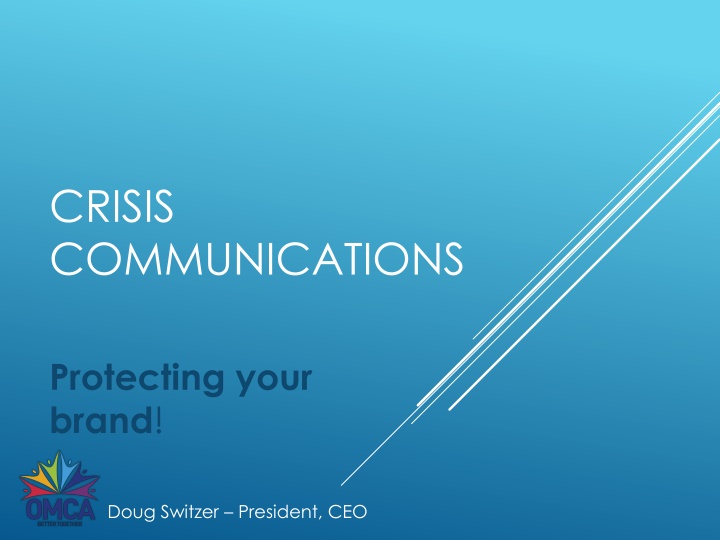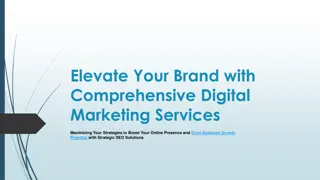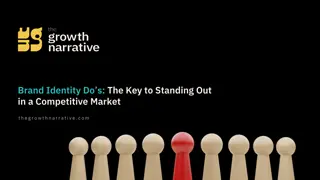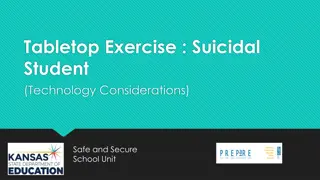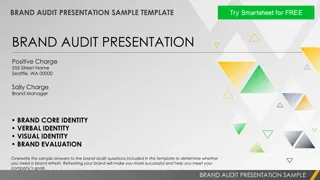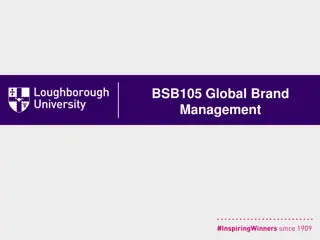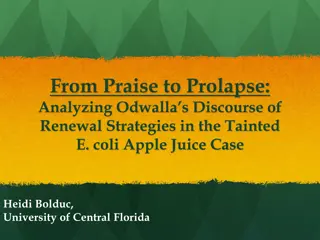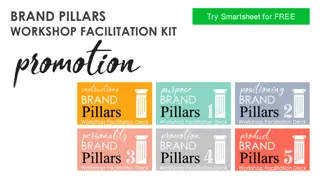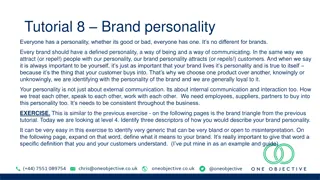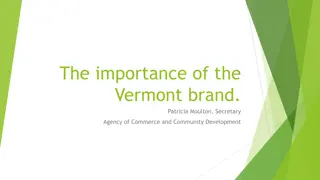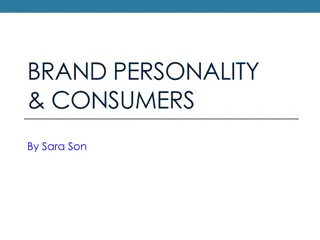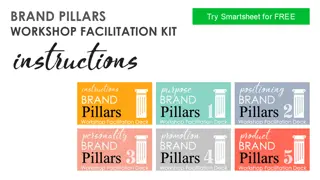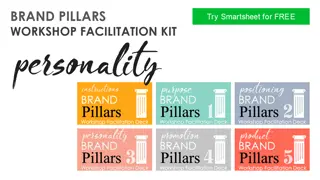Crisis Communications: Protecting Your Brand in a Digital Age
Your brand's reputation is vulnerable to damage in today's digital world. A proactive crisis communications plan is essential to safeguarding your brand image. Learn how to effectively manage negative stories, respond to media and social media, and maintain trust with stakeholders amidst a crisis.
Download Presentation

Please find below an Image/Link to download the presentation.
The content on the website is provided AS IS for your information and personal use only. It may not be sold, licensed, or shared on other websites without obtaining consent from the author.If you encounter any issues during the download, it is possible that the publisher has removed the file from their server.
You are allowed to download the files provided on this website for personal or commercial use, subject to the condition that they are used lawfully. All files are the property of their respective owners.
The content on the website is provided AS IS for your information and personal use only. It may not be sold, licensed, or shared on other websites without obtaining consent from the author.
E N D
Presentation Transcript
CRISIS COMMUNICATIONS Protecting your brand! Doug Switzer President, CEO
WHY DO YOU CARE? Your Brand, in other words your reputation, is at risk as soon as something bad happens. You are in real danger once the incident attracts media and social media attention. An effective response to a situation can save, perhaps even enhance your brand - an ineffective one can destroy your brand (and your business) overnight. It takes a lifetime to build a good reputation, but you can lose it in a minute. - Will Rogers
NO MATTER WHO YOU ARE OR WHAT YOU DO, YOUR BRAND CAN BE DAMAGED IN AN INSTANT IF YOU FAIL TO EFFECTIVELY RESPOND TO A NEGATIVE STORY
BUT IF YOURE RESPONSE IS EFFECTIVE .
SO HOW DO YOU SURVIVE A PR CRISIS? BY: 1. Being prepared 2. Defining the story, don t let others control it 3. Dealing effectively with the traditional media 4. Dealing effectively with social media 5. Communicate internally 6. Getting help if you need it
1. PUT IN PLACE A CRISIS COMMUNICATIONS PLAN NOW! Have in place a clear media call protocol as part of your plan. Make sure your communications team know their roles in advance have key contact info. Decide who will speak for the company - Media training? Consider likely crisis situations and how you would respond. Communicate the plan to your staff, make sure everyone knows what their role is. Practice it. Do refreshers for new staff and to remind existing!
2. DEFINING THE STORY Quick response, if you don t define the story, others will. While every situation is unique there are common themes you should stick to: Don t deny the problem, accept responsibility Don t be defensive or blame shift Don t speculate! Your first concern is for those hurt You have already taken action Put problem into context (spin) Provide regular updates Reassure the public (your customers) that the problem is being dealt with and that they can still trust you.
SOME BASIC TIPS FOR DEALING WITH THE MEDIA Have someone screen media calls for the spokesperson find out what their angle is before doing the interview. The media are not the enemy. They are also not your friend. They re just people with a job to do. They need to put together a story - with you or without you, they will talk about you so ignoring them won t help. Return calls asap remember, they are on deadline . They can be an effective way of getting out your side of the story, so use them. Help them understand the truth . Most will be fair with you if you have a clear, honest, and accurate story to tell. Most will be out to crucify you if you try to hide things or lie. It is their business to ask, never take the attitude that this is none of your business .
INTERVIEW DOS Know what your story is and stick to it. Anticipate the hard questions, know the weaknesses in your position and have answers ready. Practice your story, do mock interviews to practice answers. Your story should address the concerns your customers will care about, don t just focus on your own concerns. Give the answer you want, not necessarily the question that was asked. Bridge to your message.
INTERVIEW DONTS X Don t lie. Clarify, put into context, correct errors, but don t lie. X Don t say no comment or avoid means you have something to hide. Have answers. If you don t know, that s OK, just have a reason why you don t know.
MORE DONTS - MEDIA TRAPS TO AVOID Don t speculate, stick to what you know. Don t fill dead air . Don t speak for others. Don t repeat negative statements.
DO AS I SAYNOT AS I DO! A PRACTICAL DEMONSTRATION
4. DEALING EFFECTIVELY WITH SOCIAL MEDIA
Social Media is: As, if not more, important than traditional media. Faster than regular media. Less constrained by need for accuracy. Fake News More damaging it causes more severe and long lasting dmage, the internet is forever.
SOME BASIC TIPS FOR DEALING WITH SOCIAL MEDIA Don t ignore it! Be aware of what is being said about you online. Have your own social media plan as part of your communications plan. Post your message asap on your website, your twitter/facebook/etc other social media accounts. Get out in front, don t play catch up - because you never will. Provide updates regularly if the situation is ongoing. Same basic dos and don'ts as regular media.
5. COMMUNICATE INTERNALLY Your staff/organization will be aware of the incident Nature abhors a vacuum, in the absence of information, people make it up Internal people are the biggest speculators, and they all have social media Part of your communications plan should be communications internally to reassure and clarify the facts for your staff let them know what your story is
6. GETTING HELP IF YOU NEED IT If the problem is big enough/serious enough get professional help. Communications is a skill like accounting, or engineering, or legal work. You hire accountants, engineers and lawyers to help your business when you need their skills, so get professional help asap if you have a serious issue. OMCA (or another trade association) is one place you can go for help.
SO WHERE DID THESE PEOPLE GO WRONG?
THEY ALL Denied the problem existed or minimized it. Let the story drive them, played catch up. Appeared insensitive tone deaf. Offered unconvincing answers. Not only failed to reassure made things worse by being defensive and arrogant.
SUMMARY Bad things happen, even to good people and good companies. Its often how you deal with the crisis, not the crisis itself that determines how your brand will be affected. Don t panic. Be prepared, act quickly and decisively, have a clear message that shows you care and that you ve acted to resolve the issue. Demonstrate to your customers that they can continue to trust you and your product.
